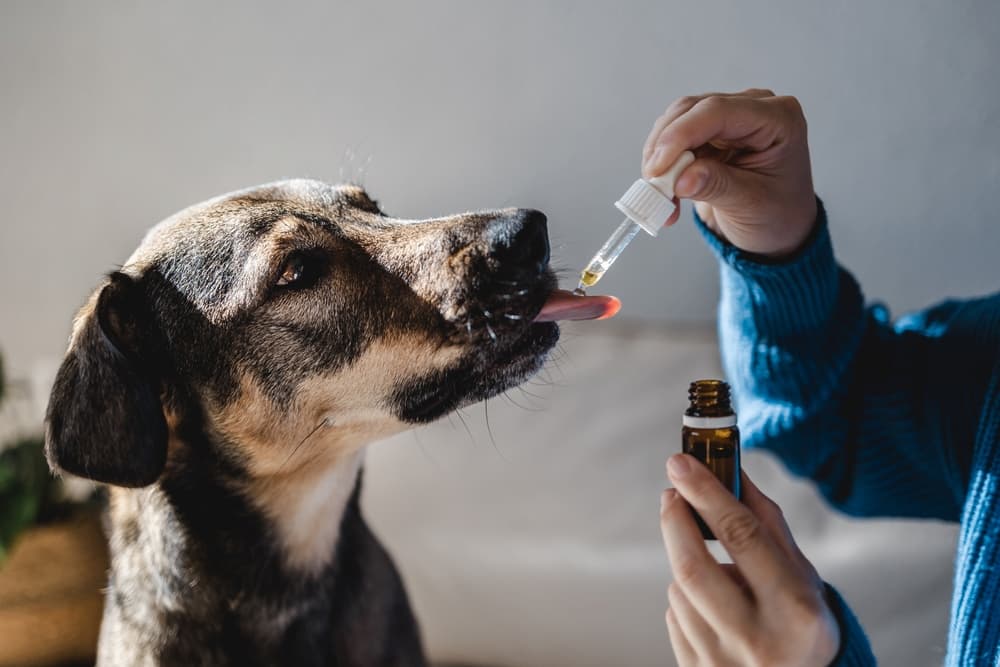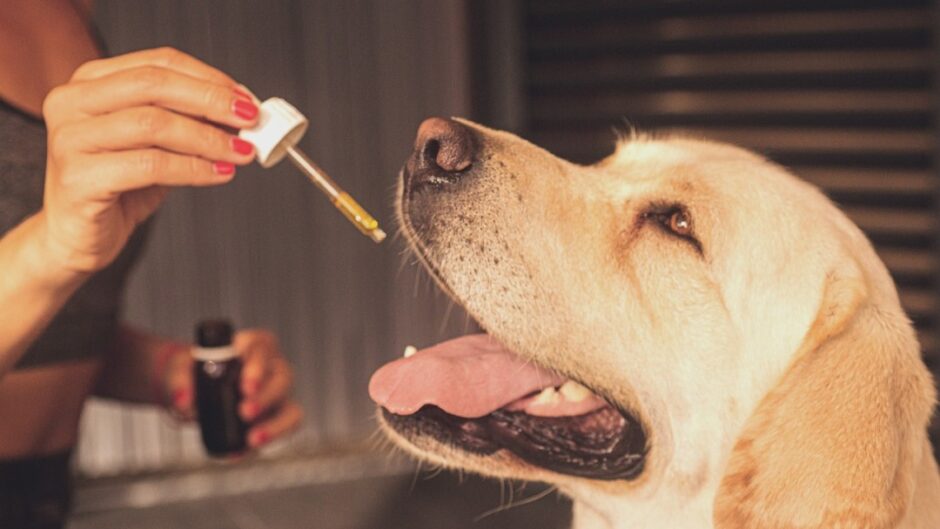Understanding CBD in the Context of Pet Health
Cannabidiol (CBD) is a compound found in cannabis and hemp plants. Unlike THC (tetrahydrocannabinol), the other well-known compound from these plants, CBD does not produce a “high.” This distinction is crucial when considering CBD for pets.

Current Research and Veterinary Insights
Research on CBD’s effects on animals is still in its infancy. However, some studies and anecdotal evidence from veterinarians suggest CBD may help manage certain conditions in pets, such as anxiety, pain, and seizures. For instance, a study published in the Journal of the American Holistic Veterinary Medical Association found that over 60% of dog owners reported CBD products helped their pets with anxiety and pain relief.
Potential Benefits of CBD for Pets
- Anxiety Relief: CBD is thought to interact with the endocannabinoid system, which helps regulate mood. This interaction may help alleviate anxiety in pets, particularly in stressful situations like thunderstorms or separation from owners.
- Pain Management: CBD may have anti-inflammatory properties, making it beneficial for pets with arthritis or other inflammatory conditions.
- Seizure Control: Some studies suggest CBD may help manage seizures in pets, particularly when traditional medications are ineffective.
Risks and Side Effects
While CBD is generally considered safe for pets, there are potential risks and side effects, including:
- Drowsiness: Especially in higher doses, CBD may cause drowsiness in pets.
- Dry Mouth: CBD can reduce saliva production, leading to a dry mouth.
- Lowered Blood Pressure: High doses of CBD might cause a temporary drop in blood pressure.
- Liver Enzyme Alteration: CBD can affect liver enzymes, which may be a concern for pets with liver issues.
Quality and Dosage Concerns
The unregulated nature of the CBD market poses challenges. It’s crucial to select high-quality, lab-tested CBD products specifically designed for pets. Dosage is another critical aspect, as it can vary based on the pet’s size, age, health condition, and the CBD product’s potency.
Veterinary Advice
Before starting a CBD regimen, consult with a veterinarian, especially if your pet is on other medications. A vet can provide guidance on appropriate products and dosages, and monitor for any adverse reactions or interactions.
Administration Methods
CBD for pets is available in various forms, including oils, capsules, and treats. The choice depends on the pet’s preference, the condition being treated, and the ease of administration.
Legal and Regulatory Considerations
While CBD is legal in many areas, the legal status can vary, especially concerning products derived from cannabis as opposed to hemp. Understanding these legal nuances is essential for pet owners.
Understanding the Endocannabinoid System in Animals
Like humans, animals have an endocannabinoid system (ECS), which plays a role in maintaining balance in the body. CBD’s interaction with the ECS is a primary reason it’s considered for managing various health issues in pets.
Differentiating Between CBD and THC for Pets
It’s vital to distinguish between CBD and THC, particularly as THC can be toxic to pets. Always ensure the CBD products chosen for pets are low in THC (less than 0.3%).
Monitoring and Adjusting CBD Use
Observe your pet’s response to CBD and adjust the dosage or product as needed. Not all pets will react the same way, and what works for one may not work for another.
The Future of CBD Research in Veterinary Medicine
As interest in CBD for pets grows, more research is underway. This future research is expected to provide deeper insights into how CBD can be safely and effectively used in veterinary medicine.
Ethical and Responsible Use of CBD in Pets
The growing popularity of CBD in pet care should be tempered with a responsible approach. It’s important for pet owners to treat CBD as they would any other therapeutic agent, with careful consideration and under the guidance of a qualified veterinarian. This is especially critical given the lack of FDA regulation in the CBD market, which can lead to variability in product quality and concentration.
Personalized Care and Attention
Every pet is unique, and what works for one may not work for another. This individual variability necessitates a personalized approach when introducing CBD into a pet’s regimen. Factors such as breed, size, age, and overall health play a significant role in how a pet might respond to CBD. Therefore, it’s not just about whether CBD is safe for pets in general, but about whether it’s safe and effective for your specific pet.
CBD as Part of a Holistic Approach
CBD should not be viewed as a cure-all or a substitute for traditional veterinary care. Instead, it’s best considered as one component of a holistic approach to pet health. This approach might include a balanced diet, regular exercise, routine veterinary checkups, and other forms of therapy.
Understanding the Source of CBD
The source of CBD is crucial for ensuring its safety and efficacy. Hemp-derived CBD is generally preferred for pets due to its low THC content. Pet owners should look for products made from high-quality, organically grown hemp to avoid contaminants such as pesticides.
Long-Term Implications
The long-term effects of CBD use in pets are still largely unknown. This is an important consideration for pet owners thinking about incorporating CBD into their pet’s long-term wellness plan. Ongoing monitoring and veterinary supervision are key to ensuring that CBD continues to be a beneficial part of a pet’s health regimen.
Educating Pet Owners
Education is vital in the realm of CBD. Misinformation can lead to misuse or unrealistic expectations. Pet owners should seek information from reliable sources, including veterinarians and peer-reviewed research, to make informed decisions about using CBD with their pets.
Conclusion
CBD presents a promising but still emerging option for pet health. While initial studies and anecdotal evidence are encouraging, more research is necessary to fully understand its effects. The key for pet owners is to approach CBD use thoughtfully, prioritizing quality and safety, and involving a veterinarian in the decision-making process. As the body of research grows, we can anticipate a clearer picture of how CBD can contribute to the well-being of our beloved pets.




